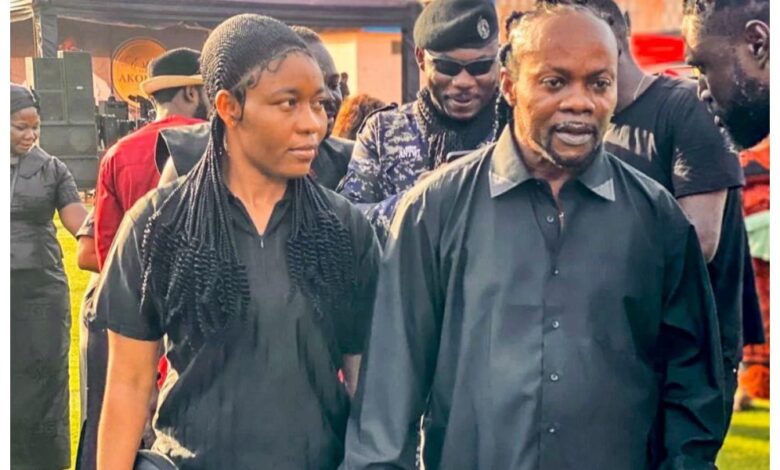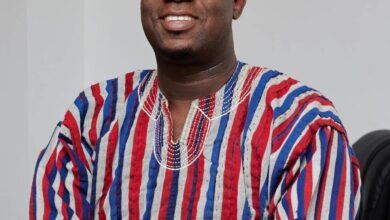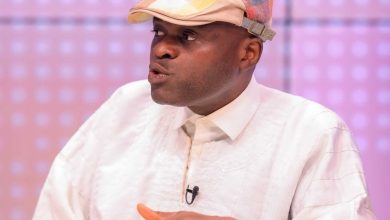Why Daddy Lumba deserves a state burial: Honouring a national treasure

Over the years, rumours of his death have surfaced many times, each time false, and each time followed by collective relief. But this morning, Ghana woke up to that heartbreaking news once again.
We hoped, as always, that it would turn out to be untrue. Sadly, this time, it is real.
Charles Kojo Fosu, known to millions as Daddy Lumba, the maestro of modern highlife, is gone at the age of 60.
When he sang about his own mortality in songs like “Makra Mo” and “Ankwanoma,” he didn’t know, and neither did we, that the day would come so soon. Yet today, Saturday, July 26, 2025, that heartbreaking prophecy has come to pass.
This is not just a personal or musical loss, it is a cultural, generational, and profoundly national tragedy. And as we mourn this colossal loss, one thing must be made clear: Daddy Lumba deserves a state burial.
Daddy Lumba’s career wasn’t just about entertainment. It was about identity. Through over three decades of artistry, he chronicled the Ghanaian experience with elegance and authenticity; our joy, our heartbreak, our resilience, our contradictions.
His music served as social commentary, spiritual refuge, campaign anthems, and a national soundtrack. To countless Ghanaians at home and in the diaspora, Lumba’s voice was, simply put, the voice of Ghana.
In a nation where music is a vessel of memory and meaning, Daddy Lumba stands among the most powerful custodians of our cultural heritage. His contribution transcended charts and awards, it shaped the soul of Ghanaians.
Daddy Lumba left behind over 30 studio albums, many of which became instant classics. He won multiple Ghana Music Awards and earned recognition across Africa. His sound seamlessly crossed genres from highlife to gospel to Afro-pop, while staying uniquely his.
He mentored and introduced top artists, including Ofori Amponsah and Borax, paving the way for a new generation of Ghanaian musicians.
His songs, “Aben Wo Ha,” “Yentie Obiaa,” “Akwanoma,” and “Theresa”, have become intergenerational anthems. And in 2025, his timeless track “Mpempem Do Me” was featured on the Commonwealth Royal Playlist, a rare and dignified honour that reflected his global resonance.
If the arts are the heartbeat of a nation, then Daddy Lumba was its strongest pulse.
Why a State Burial Is Justified
A state burial is more than ceremonial. It is a symbolic act of national gratitude, a formal acknowledgment of someone whose life has helped shape the destiny and dignity of Ghana.
Daddy Lumba’s legacy meets and exceeds every reason such an honour should be granted:
• Cultural Legacy: He transformed and globalized highlife music.
• National Unity: His music transcended political, religious, and ethnic boundaries.
• Diasporic Identity: For Ghanaians abroad, his songs were bridges to home.
• Mentorship: He nurtured artists who now define our modern music scene.
• Moral Courage: In controversial times, he remained unapologetically himself; fearless, authentic, and loyal to his craft.
If we honour statesmen for policies and footballers for trophies, why not honour a man who gave us the music of our lives?
Too often, we honour greatness only after it is gone. But a state burial for Daddy Lumba would be more than a tribute to a single man. It would be a bold declaration that Ghana values its artists, that culture matters, and that legacies like his will never be forgotten.
Let not the dust of time erase what the melodies of Lumba engraved in our hearts.
Let the Black Star salute one of its brightest sons.
Give Daddy Lumba a State Burial ; Ghana Owes Him That Much
Written by Bismark Odum-Sackey




